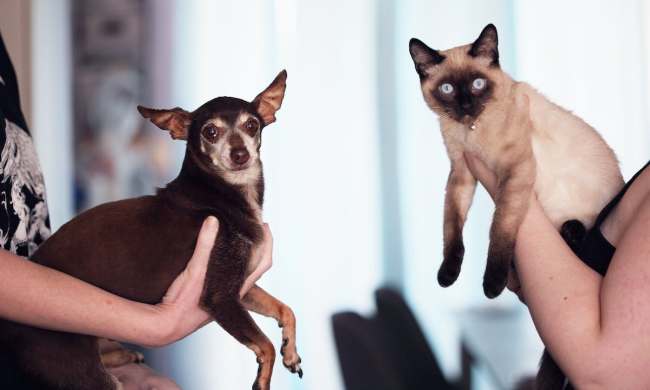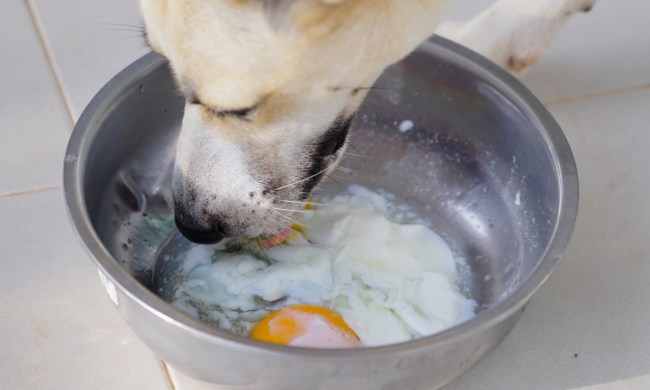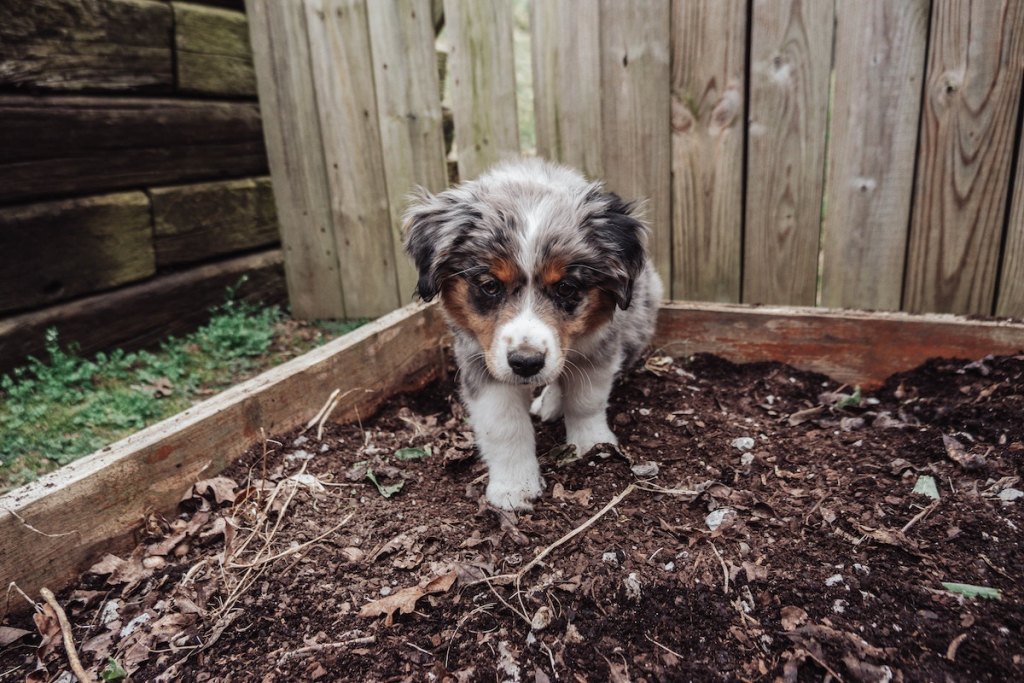
You likely came here looking for information on the mini Aussie. We’re sorry to disappoint you with this interesting plot twist: There’s no such thing as a mini Aussie, at least not anymore. The breed is recognized as the mini American shepherd these days — a more accurate name because the dogs were developed in the U.S. and not Down Under.
Name games aside, these affectionate dogs are some of the most loving. Though mini American shepherds have a long history as herding animals, the breed currently and most commonly takes on the role of “human’s best friend” these days. Is a mini American shepherd the right dog for you? Read on.
The history of the mini American shepherd
The history of the mini American shepherd can feel confusing, primarily because of the name. Mini American shepherds are still commonly referred to as “mini Aussies,” a name they haven’t had since gaining American Kennel Club (AKC) recognition in 2015.
The breed was developed from Australian shepherds. Ready for another plot twist? That breed didn’t come from Australia, either. The breed likely originated in Spain and helped shepherds in the fields. These shepherds traveled with their dogs to Australia and later to the U.S. Americans began calling them “Australian shepherds.”
California ranchers took a liking to the Australian shepherds and began breeding them to be smaller. Hence, the “mini Aussie” was developed. The dogs reached the breeders’ desired size in the 1970s.
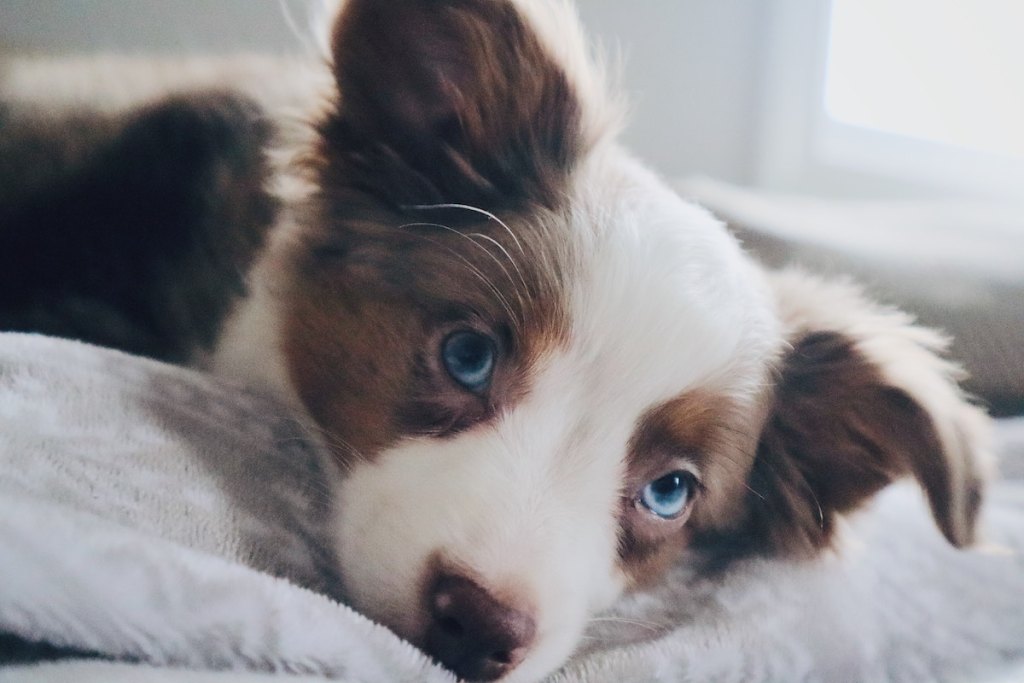
A comprehensive guide to the mini American Shepherd
Mini American shepherds are popular for their stunning looks and endearing personalities. Get to know this breed a little better to see if it’s one that interests you.
Physical characteristics
Mini American shepherds have specific breed standards that must be met for the dogs to be considered purebred.
Height: 14-18 inches (male), 13-17 inches (female)
Weight: 20-40 pounds
Coat: Medium-length double-coat
Life span: 12-13 years
Typical health problems
It’s not fun to think about your beloved dog getting sick. However, it happens, and knowing the risks can help you make informed decisions about your pet’s care, such as calling the vet when you notice symptoms. Mini American shepherds have an average life span of 12 to 13 years, which means some may live longer or shorter lives. The breed is also more susceptible to certain conditions, including:
- Eye issues, like progressive retinal atrophy and cataracts
- Hip dysplasia
- Tooth decay and gum disease
- Multidrug resistance mutation (MDR1), which causes drug sensitivities
Your dog’s vet is your top resource for insights into your pet’s health. Sometimes, issues are hereditary and out of your control. (Responsible breeders will not breed dogs with specific genetic issues, such as cataracts, and will let you know about health concerns in a puppy’s lineage before you purchase a pet.)
However, there are some basic steps you can take to keep your mini American shepherd healthy, including the following:
- Brushing teeth once per day
- Keeping nails clipped
- Brushing their gorgeous coat about once per week
- Scheduling regular vet checkups, typically one to two times per year, depending on your pet’s age and health
- Staying up to date with vaccinations and preventatives
- Feeding your dog food with the AAFCO seal
- Limiting treats to 10% of their daily calorie intake
- Bathing frequently
- Cleaning ears regularly, including going in the water for swims and baths
- Providing plenty of fresh water
- Ensuring they get plenty of exercise (mini American shepherds have high needs for physical and mental stimulation)
Personality traits
Don’t let “mini” fool you. Not only are mini American shepherds technically a medium-sized breed, but they also have large personalities. As former herding dogs, mini American shepherds have a need to move — a ton. They have boundless energy and love outdoor fun. Hiking, long walks, and trips to the dog park are on these busy pups’ to-do lists.
Still, mini American shepherds are affectionate dogs that will gladly cuddle with you after a day of adventure. The breed usually gets along swimmingly with young children and other dogs. You’ll want to monitor interactions between mini American shepherds and little kids, though. A wobbly toddler’s touch and version of play can feel jarring to even the sweetest pets. Be sure to bring any dogs currently in the family home to meet the mini American shepherd you’re interested in bringing home to get an idea of whether it’s a good fit.
Mini American shepherds are not known for getting along well with cats, but they love horses.
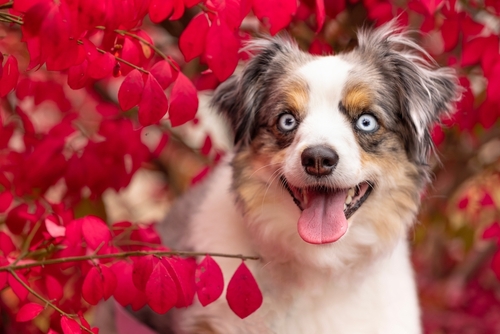
Every dog is different. Even siblings born moments apart may have vastly different personalities; something that also happens in human families. Though breed characteristics are generalizations, they’re based on commonalities that breeders and organizations like the AKC have noticed over many years. In other words, there’s value in researching breeds to help guide you in your decisions about dog parenthood.
After you’ve learned about breeds that do and don’t interest you, you can start meeting specific dogs in person. Some may be a mix of breeds, getting (hopefully) the best of many types of dogs. Ultimately, your final decision will rest in a dog that has the personality and needs that best fit what you’re looking for and can give. Reputable breeders, vets, animal shelters, and rescues can provide you with more resources to help you make the best choice on the type of dog to welcome into your home.


